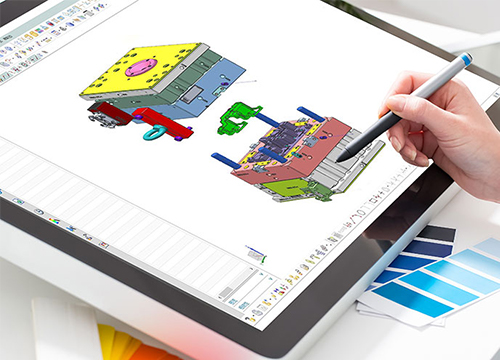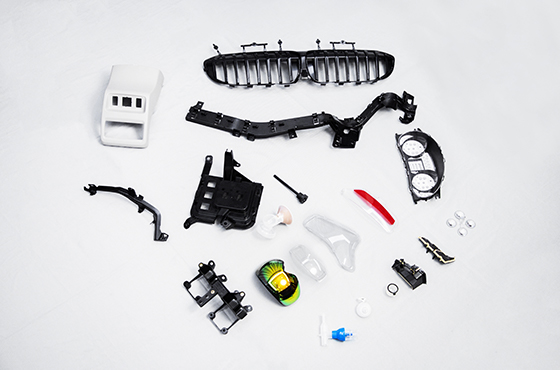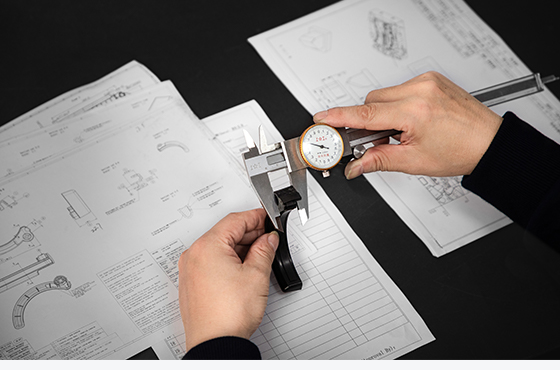In the vast manufacturing landscape, moulds are pivotal in shaping products with precision and accuracy. From intricate automotive components to household items, moulds are indispensable in production. This article delves into moulds companies, understanding their significance, types, selection criteria, and future trends.
Importance of Moulds in Manufacturing
The importance of moulds in manufacturing cannot be overstated. These essential tools are the foundation for producing various products across various industries. Whether plastic injection moulding or metal casting, moulds play a crucial role in facilitating the replication of designs with utmost precision and accuracy.
Moulds enable manufacturers to mass-produce identical parts consistently, ensuring uniformity in the final products. This consistency is vital for maintaining quality standards and meeting customer expectations. Moreover, the efficiency of production lines is significantly enhanced through moulds, as they enable rapid design replication without compromising quality.
There are several types of moulds used in manufacturing, each catering to different production requirements:
1. Injection Moulds:
Injection moulds, typically crafted from steel or aluminium, are employed to create intricate shapes by injecting molten material into the mould cavity. This process is highly versatile and is utilized across various industries to produce diverse products, from automotive components to consumer electronics.
2. Compression Moulds:
Compression moulding involves compressing a preheated material into a mould cavity. This method is particularly suitable for producing high-strength components with complex geometries. Compression moulds are commonly used in industries such as aerospace, where lightweight yet durable materials are required for aircraft components.
3. Transfer Moulds:
Transfer moulding combines elements of both injection and compression moulding. It entails transferring the preheated material into a closed mould cavity, ensuring uniform distribution and precise shaping. Transfer moulds offer advantages such as reduced material waste and improved part quality, making them a preferred choice for specific manufacturing applications.
In conclusion, moulds are indispensable tools in manufacturing, enabling efficient production of high-quality products across diverse industries. Their ability to precisely replicate designs and the versatility of different moulding techniques make them essential assets for manufacturers seeking to streamline production processes and maintain a competitive edge in the market.
Key Factors to Consider When Choosing a Moulds Company
When choosing a moulds company, it’s essential to consider several key factors to ensure the success of your manufacturing projects:
1. Quality:
The quality of the moulds is paramount as it directly influences the quality of the final product. Opting for a company renowned for its precision engineering and for producing durable moulds is crucial. High-quality moulds ensure consistency in product manufacturing and minimize defects, ultimately enhancing customer satisfaction.
2. Experience:
A mould company’s experience indicates its expertise and reliability. Look for a company with a proven track record in designing and manufacturing moulds across diverse industries. Experienced companies are better equipped to handle complex projects, understand industry-specific requirements, and offer innovative solutions to challenges that may arise during manufacturing.
3. Customization Options:
Every manufacturing project is unique, with specific requirements and objectives. Therefore, choosing a company that offers customization options to tailor mould designs to meet your project’s specific needs is vital. Whether it’s modifying existing designs or creating entirely new moulds from scratch, a moulds company with comprehensive customization capabilities can ensure that your manufacturing goals are met efficiently and effectively.
4. Cost:
While cost is undoubtedly a crucial consideration, it’s essential to prioritize quality and reliability over low prices. Opting for cheaper moulds may initially seem cost-effective but can lead to compromised product quality, increased downtime, and higher long-term costs due to maintenance and replacements. Instead, focus on finding a moulds company that offers competitive pricing while maintaining high standards of quality and reliability.
By carefully evaluating these key factors, you can confidently select a moulds company that aligns with your manufacturing goals, ensuring the success and efficiency of your projects.
Benefits of Working with a Reliable Moulds Company
Working with a reliable moulds company provides several benefits that can significantly enhance the success and efficiency of manufacturing projects:
1. Expertise:
By collaborating with a reputable mould company, you can access skilled engineers and designers proficient in mould manufacturing. These professionals have in-depth knowledge and experience in designing and producing high-quality moulds tailored to your requirements. Their expertise ensures that the moulds meet precise specifications and deliver optimal performance, ultimately contributing to the success of your manufacturing endeavours.
2. Efficiency:
Reliable moulds companies prioritize efficiency in their production processes, resulting in streamlined workflows and faster turnaround times. By leveraging efficient manufacturing techniques and advanced machinery, they can expedite the production of moulds without compromising on quality. This increased efficiency translates to shorter lead times, allowing you to bring your products to market more quickly and stay ahead of competitors.
3. Innovation:
Leading mould companies are committed to innovation, constantly exploring and implementing the latest technologies and techniques in mould manufacturing. By harnessing cutting-edge innovations, such as advanced materials, computer-aided design (CAD) software, and additive manufacturing processes, they can achieve superior results and offer innovative solutions to complex manufacturing challenges. This commitment to innovation ensures that your moulds are at the forefront of technological advancements, enhancing product quality and competitiveness.
4. Support:
A reliable moulds company doesn’t just deliver moulds and end its engagement; it provides ongoing support and maintenance services to ensure the long-term performance and durability of the moulds. From regular maintenance checks to troubleshooting issues and providing technical assistance, the company offers comprehensive support throughout the lifecycle of the moulds. This proactive approach to customer support minimizes downtime, extends the lifespan of the moulds, and maximizes your return on investment.
Collaborating with a reputable moulds company offers many advantages, including access to expertise, streamlined production processes, innovative solutions, and reliable support services. By choosing the right partner, you can ensure the success and efficiency of your manufacturing projects while staying ahead of the competition.
How to Find the Best Moulds Company
A systematic approach involving thorough research and evaluation is essential to find the best mould company for your manufacturing needs. Here’s a step-by-step guide on how to identify the most suitable partner:
1. Research:
Start by conducting comprehensive research on various mould companies. Explore their websites, online directories, and industry publications to gather information about their capabilities, services offered, and areas of expertise. Please pay attention to their experience in the field, the range of mould types they specialize in, and the industries they serve.
2. Reviews and Testimonials:
Reading reviews and testimonials from previous clients can provide valuable insights into the quality of service a moulds company offers. Look for reviews on third-party review websites, social media platforms, and industry forums. Pay attention to the overall satisfaction levels and specific feedback on aspects such as communication, reliability, and the quality of the moulds delivered.
3. Quality of Work Samples:
Request samples of the company’s work to assess the quality and precision of their moulds firsthand. Examine the samples closely to evaluate surface finish, dimensional accuracy, and consistency. Pay attention to details like parting lines, ejector pin marks, and any visible defects. Additionally, please inquire about the materials used and the manufacturing processes employed to ensure they align with your project requirements.
By following these steps and conducting thorough research and evaluation, you can effectively identify and select the best moulds company to partner with for your manufacturing projects.
Case Studies: Successful Implementations of Moulds by Leading Companies
Case studies highlight real-world applications of moulds in various industries, showcasing their effectiveness in enhancing manufacturing processes and product quality.
Innovations in Mould Manufacturing
Advancements in materials, design software, and manufacturing techniques continue to revolutionize the moulds industry, enabling companies to create more complex and efficient moulds.
Future Trends in the Moulds Industry
The future of mould manufacturing is marked by advancements in automation, additive manufacturing, and sustainability initiatives aimed at reducing environmental impact.
Sustainability in Mould Manufacturing
Companies increasingly focus on sustainable practices such as recyclable materials and energy-efficient processes to minimize their carbon footprint and contribute to a greener future.
Conclusion
In conclusion, moulds companies play a crucial role in the manufacturing ecosystem, enabling the production of high-quality components across various industries. Manufacturers can streamline their production processes and achieve greater efficiency and precision by understanding the importance of moulds, selecting the right company, and embracing innovation.
FAQs (Frequently Asked Questions)
1. What industries rely on moulds for manufacturing?
Moulds are utilized in various industries, including automotive, aerospace, consumer goods, and electronics.
2. How long does designing and manufacturing a custom mould take?
The timeline for designing and manufacturing a custom mould varies depending on complexity, size, and material, but it typically ranges from weeks to months.
3. Can moulds be reused for multiple production runs?
Depending on the material and design, moulds can often be reused for multiple production runs, making them a cost-effective solution for mass production.
4. What are some common challenges faced in mould manufacturing?
Common challenges include achieving precise dimensions, preventing defects such as warping or shrinkage, and optimizing cycle times for efficiency.
5. How can companies ensure the longevity of their moulds?
Regular maintenance, proper storage, and adherence to recommended operating parameters can help prolong the lifespan of moulds and ensure consistent performance over time.



